The "undoing of self" and other things I cannot understand
Anne Carson I have a lot of questions for you.
I signed up for a yoga class today called Sunday Service. I don’t go to church often, yet sometimes, when Sunday rolls around, I crave a place to worship. Worship what, you may ask? I have no idea. But I like the ritual.
So when I saw that this warm (not hot) yoga class was called Sunday Service, sign me up!
It was exactly what I was hoping for. Everyone knew each other. The playlist was excellent. It felt like we were all worshipping some form of higher power without knowing what that higher power was. I loved it.
I like studying things or experiencing things I don’t understand. It provides me with a challenge. A challenge that I can never solve most of the time, but the act of working through a problem is my favorite part.
The poet/model/influencer/I don’t even know what she is… Orion Carloto started a book club this year called Bible Study (pretty fitting for this essay lol) and the February book of the month was Decreation by Anne Carson.
As much as I like to say I read everything…I don’t. I sit comfortably in my world of novels, rarely straying to any other piece of literature.
Decreation is a collection of “poetry, essays, and opera,” and I didn’t fully understand what that meant until I read it. I still don’t understand.
To start, this book is INCREDIBLY hard to track down. It’s not available as a paperback on Amazon nor on Kindle, and Barnes & Noble does have copies, but they take weeks to ship.
So I was forced to wait, and in hindsight, that was probably a good thing. The convenience factor was taken out, and I sat with my anticipation, which was incredibly high.
This book is not one you can read passively. You have to pour your brain power into it, and even then, you’ll miss things. It feels like every single word on the page was chosen intentionally. But isn’t that how all poetry is written?
Decreation, defined by Simone Weil, is described as “undoing the creature in us” or an undoing of self.
I have to be honest; halfway through the book, I was so incredibly lost. I had no idea what was happening. And so I turned to Goodreads to figure out if everyone was feeling the same as me or if I was an outlier.
The reviews differed. There were a lot of 4 and 5-star reviews that read similarly to:
…Same.
This next review was incredibly interesting to me because who speaks like this???
“The rarefied ennui of an intellectual who spends far too much time in the company of books, and who would rather read of the rage of Achilles than stake her own heart in the bungled human comedy. I don't make this kind of statement lightly, but I do actually believe she should retire from teaching and go live a little.”
The reader makes a fair point. I don’t think I’d want to live inside Anne Carson’s head for the day. Not because it wouldn’t be fascinating (it would) but because she seems SO in her head that she’d be incapable of living outside her body. Her ability to craft poetry and essays about things that cannot be seen is a talent that I feel lucky to have experienced through reading this book, but I don’t know if I want to be the person to craft those words.
Anne Carson writes in a language that I cannot understand. I love it. Yeah, it’s a little bit of an ego-kill because, in my head, I think I can read and understand anything, but this book put me in my place.
In her book, Carson quotes Marguerite Porete saying “His Farness is the more Near” when speaking about God, and THEN follows up by saying “I have no idea what this sentence means but it gives me a thrill. It fills me with wonder. In itself the sentence is a small complete act of worship, like a hymn or a prayer.”
So ANNE CARSON HERSELF LOVES TO READ THINGS SHE CAN’T UNDERSTAND! Just like me!
If this is how all poetry makes me feel, then sign me up. This feels like religion - believing in things I don’t fully understand but it damn well makes me feel something.
If someone were to make me recap this book packaged in a perfectly written paragraph, I’d fail tremendously. But here are a few of my favorite parts that kinda get the point across:

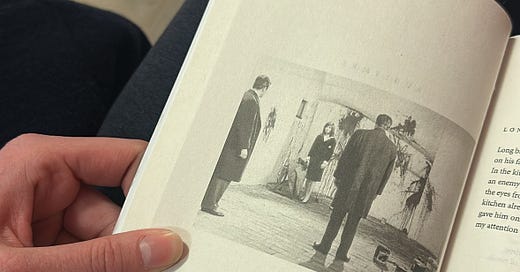


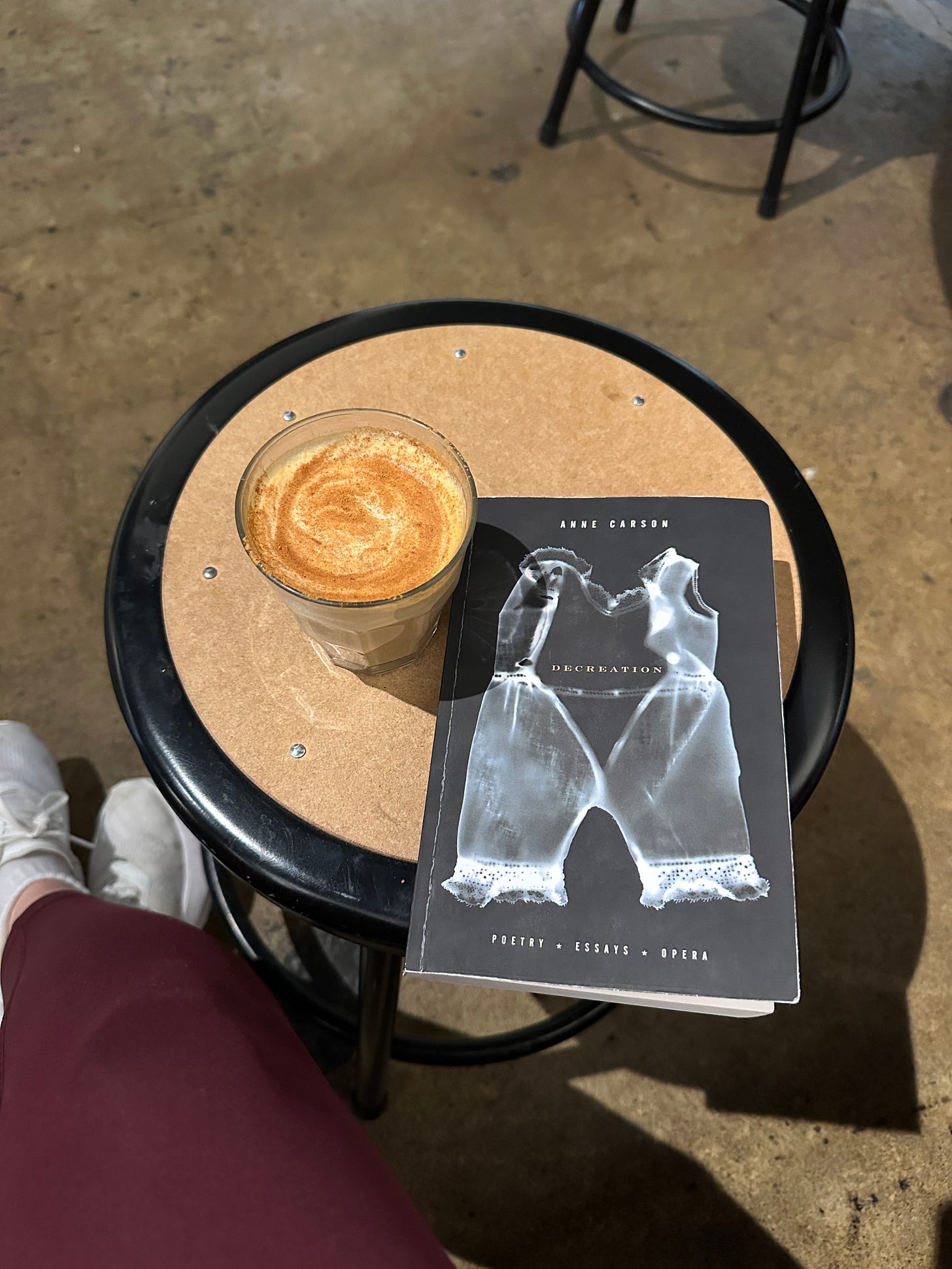

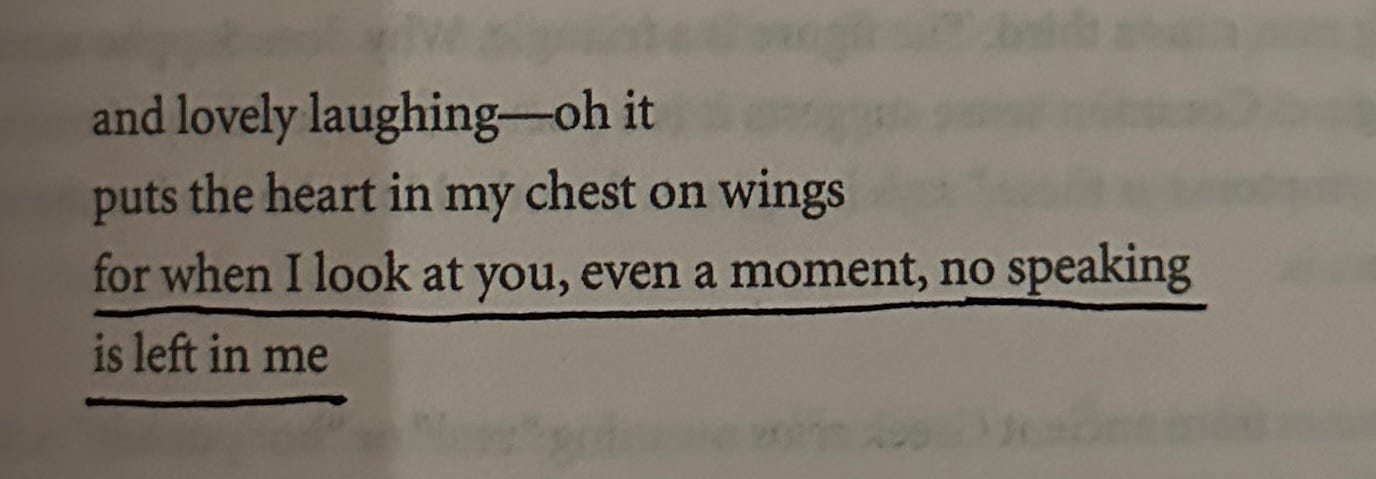

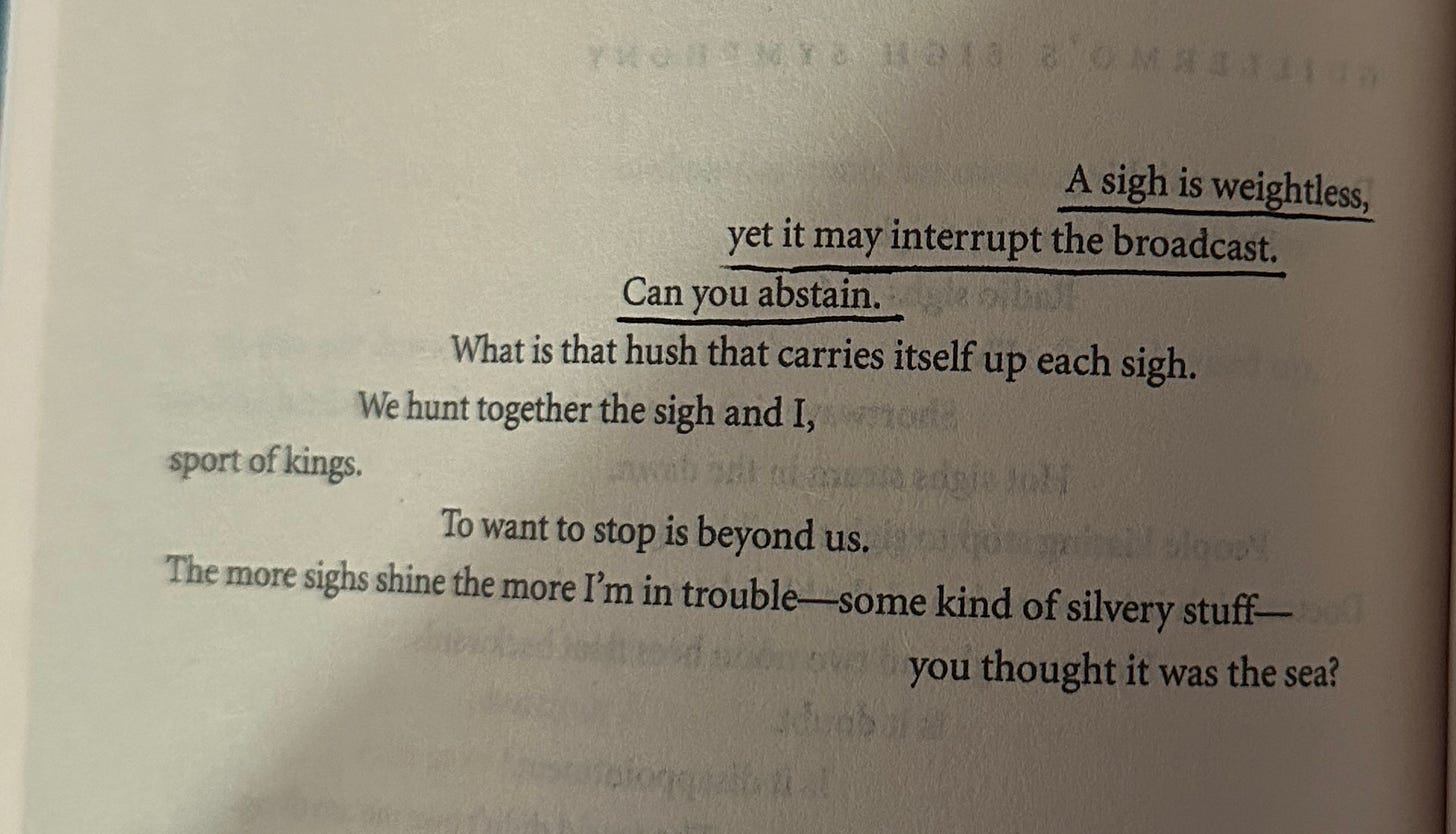
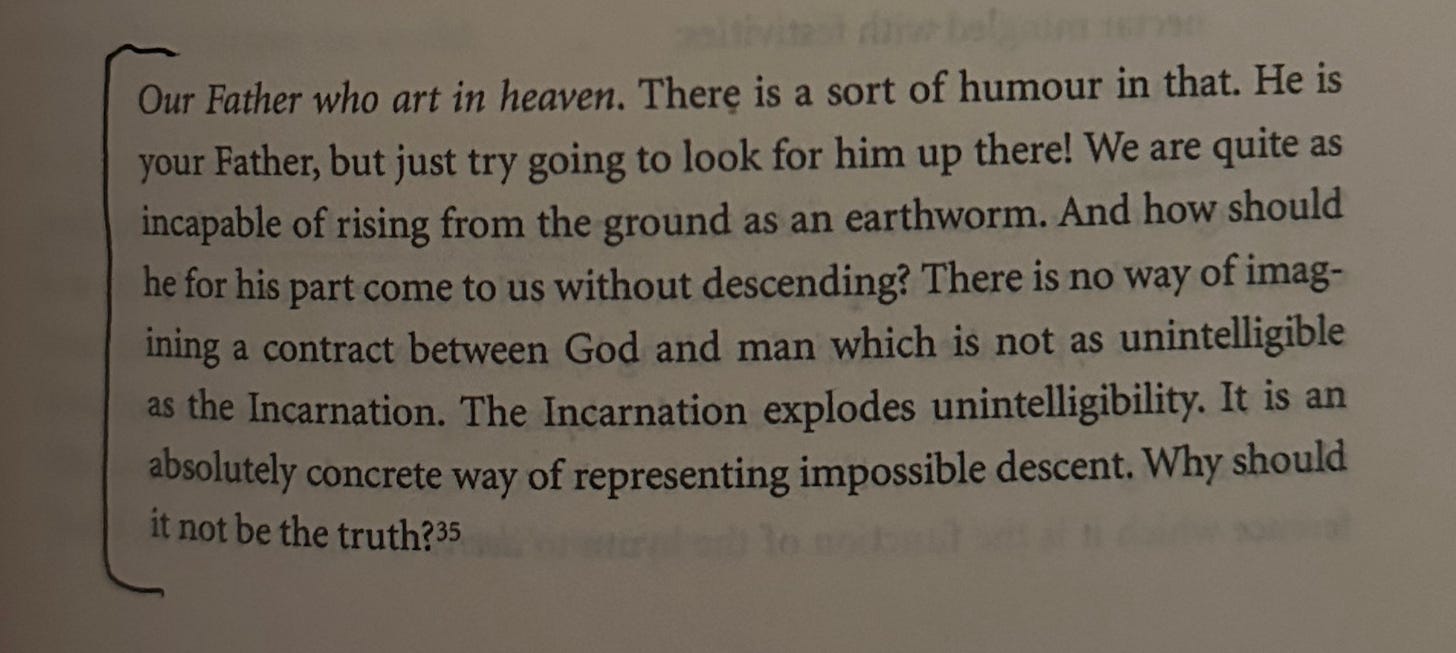


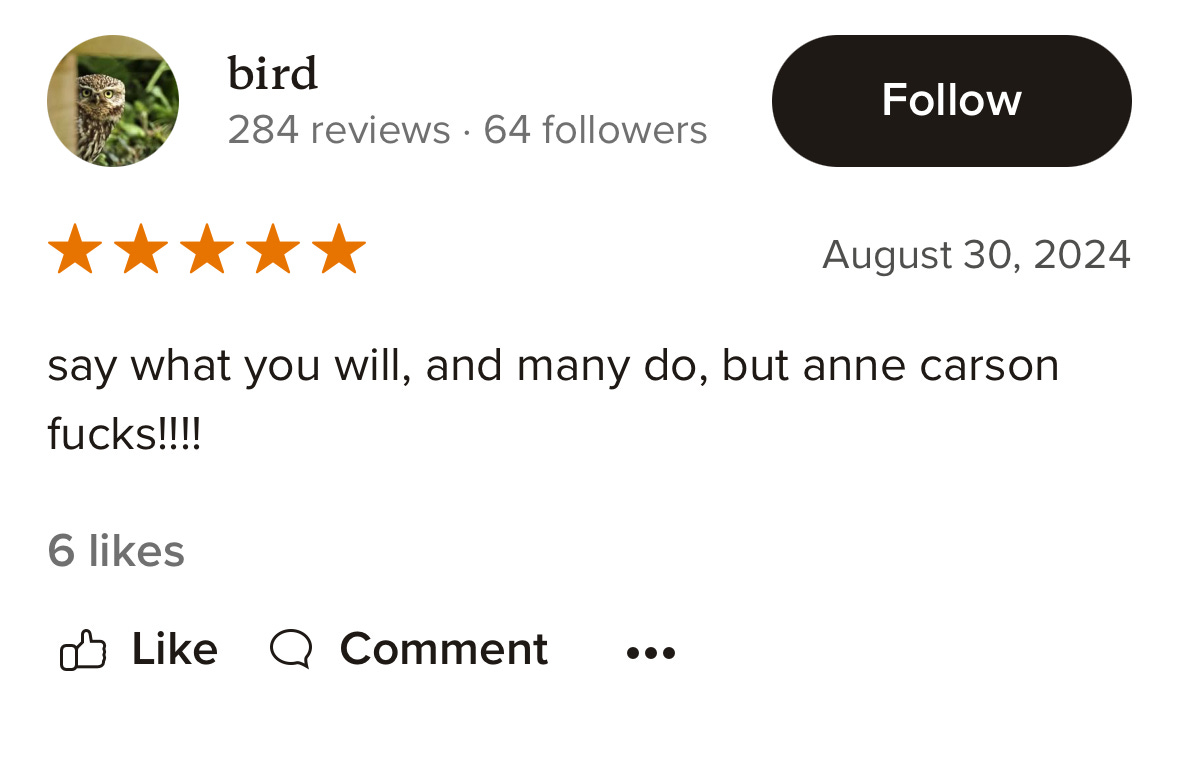
You've somehow managed to write something that combines all my niche interests: writing that doesn't make sense, the mysterious phenomenon of poets-turned-influencers, and the rise of the "ironic Christian" trend I've observed.
There are so many writers right now who are deeply and profoundly connecting with God without seeming capable of admitting that's what we're doing, myself included. It's an interesting thing to observe: the least religiously indoctrinated people becoming the most curious about the divine.
Excellent, excellent writing. I'm subscribing right now!
love this